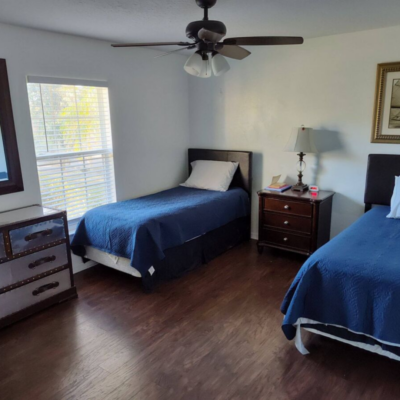5 Key Benefits of Residential Substance Use Disorder Rehab

Residential substance use disorder (SUD) rehab, also known as inpatient rehab, offers individuals struggling with addiction a structured and immersive environment for recovery. This form of treatment provides 24/7 care and support, helping individuals break free from the grip of substance abuse and rebuild their lives. Below, we highlight 5 benefits of residential rehab.
1. Professional Guidance and Medical Care: One of the primary advantages of residential rehab is access to professional guidance and medical care. These programs are staffed with experienced addiction specialists, therapists, and medical professionals who are dedicated to providing personalized care. During inpatient treatment, a team of healthcare professionals can monitor withdrawal symptoms, manage medications, and address any underlying physical or mental health conditions associated with substance abuse.
2. Safe & Supportive Environment: Residential rehab encourages individuals to focus on their recovery without distractions or temptations. The structured routine of daily therapy sessions, group activities, and educational programs cultivates a sense of community, fostering camaraderie and mutual support among peers who are on the same journey toward recovery. By residing within a controlled setting, away from triggering influences and enabling factors, individuals can break free from negative patterns and develop healthier coping mechanisms.
3. Intensive Therapy & Counseling: Individual and group therapy play a pivotal role in residential rehab programs, giving residents the opportunity to delve into the underlying causes of their addiction, address past traumas, and develop effective coping strategies. Therapists employ evidence-based approaches such as cognitive-behavioral therapy (CBT), accelerated resolution therapy (ART), and motivational interviewing (MI) to promote self-reflection, emotional healing, and behavior change.
4. Skill Development & Relapse Prevention: Inpatient rehab programs focus not only on overcoming addiction but also on equipping individuals with the necessary skills to prevent relapse and lead fulfilling lives. Through educational workshops, life skills training, and relapse prevention strategies, individuals gain valuable insights into managing triggers, stress, and cravings. They learn effective communication, problem-solving, and decision-making skills, empowering them to navigate challenges and make healthier choices in their everyday lives.
5. Continued Support & Aftercare: Recovery is a lifelong process, and residential rehab programs recognize the importance of continued support beyond the initial treatment phase. Aftercare services such as outpatient therapy, support groups, and alumni programs, facilitate relapse prevention. Ensuring that individuals have access to a network of peers and professionals who understand their struggles significantly increases the chances of maintaining sobriety and building a meaningful, substance-free life.
At Serenity Springs Recovery Center, our residential inpatient program substance provides a comprehensive and immersive approach to addiction treatment. From professional guidance and medical care to a safe and supportive environment, intensive therapy and counseling, skill development, and continued support, our program addresses the multifaceted aspects of addiction and empowers individuals to reclaim their lives.




